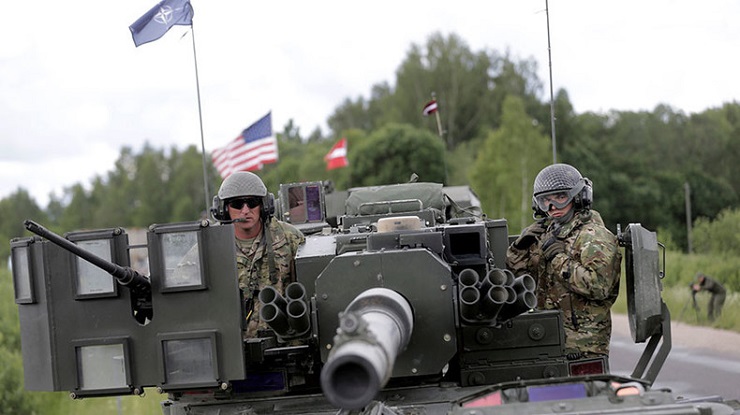Americans would have had to watch the World Football Cup being disputed across Russia on France 24 to get an idea of the side benefits being reaped by that country. Over and over enthusiastic fans noted that they had been mislead by their national media, whether in Great Britain, Japan, or Australia. This remark may not be very original, but I guess the past week showed that to be a great statesman you not only have to know international law and have an ideology, you need to realize that for most people, in the end, evidence trumps propaganda.
After a first run in Sochi, in 2014, that coincided with the US-instigated coup against the legally-elected President of Ukraine, and which bore the brunt of anti-Russian propaganda, President Vladimir Putin’s all or nothing bet was to host the World Cup in eleven cities across Russia — maybe to underscore the fact that Russia covers eleven time zones. The host cities were Moscow, St Petersburg, Sochi, Kazan, Nizhny-Novgorod, Samara, Rostov on Don, Volgograd, Kaliningrad and Sarans, and Ykaterinaberg, on the border with China.
What better way could there be to introduce sports fans to the big bad bear? With beer flowing and pretty girls out in force, what could there possibly be not to like? Even in Russia, it gets warm in summer. The thousands of fans who journeyed across the world to experience Russia for themselves will never respond to the latest news about ‘the former KGB officer’ the way they’re supposed to again.
And I bet Western journalists are frantically digging around to try to prove that President Putin used ‘compromat’ against the World Cup board in order to secure their vote to give Russia the games.
And yet, as the July 16 Summit between Presidents Trump and Putin grows closer, the US media frantically signals the danger of the two presidents meeting without translators — i.e., witnesses — fearful the ‘naive’ American president will give away the store. To counter that danger, a former NATO Deputy Secretary General and Ambassador to Russia, now an Atlantic Council Fellow, penned an oped for dailies across the US, that suggests the US is putting the brakes on its its anti-Russia campaign — at least for now.
Without admitting the presence of thousands of NATO troops on Russia’s western border, from the Baltic to the Black Sea, Alexander Vershbow suggests that “We could seek an understanding with Moscow to reduce the size of military exercises in Europe and to strengthen existing agreements on advance notification and observation of exercises.” While Russia is not conducting military exercises outside its own borders with Europe, President Putin’s build-up of military forces within Russia — which is what any responsible leader would do when faced with a direct threat — appears to have made NATO sit-up and think.
In fact, Vershbow goes on to suggest “deepening the military-to-military dialogue between NATO and Russia and expanding information sharing on terrorist threats. We could propose visits to US and Russian military facilities for on-site inspections that could resolve each side’s concerns about non-compliance with the INF Treaty before that historical agreement collapses.”
It seems clear that these overtures, far from representing good faith, are a way for the US to ascertain Russia’s state of readiness to confront the attack NATO’s buildup on its border portends. And in the following paragraph, Vershbow reveals the true goal of his so-called conciliatory proposals: They could ‘create space for tackling more difficult issues such as Russian withdrawal from eastern Ukraine.’
In plain talk, the US is hinting that were Russia to cease all aid to the Russian-speaking population of Eastern Ukraine, which has been the brunt of aggressive behavior by Kiev, it might consider withdrawing its troops and tanks from Russia’s border. Never mind that the NATO buildup started long before the US orchestrated 2014 coup against Ukraine’s Russia-friendly elected president: immediately after the fall of the Soviet Union, in the early nineties, to be exact.
Deena Stryker is an international expert, author and journalist that has been at the forefront of international politics for over thirty years, exlusively for the online journal “New Eastern Outlook”.

